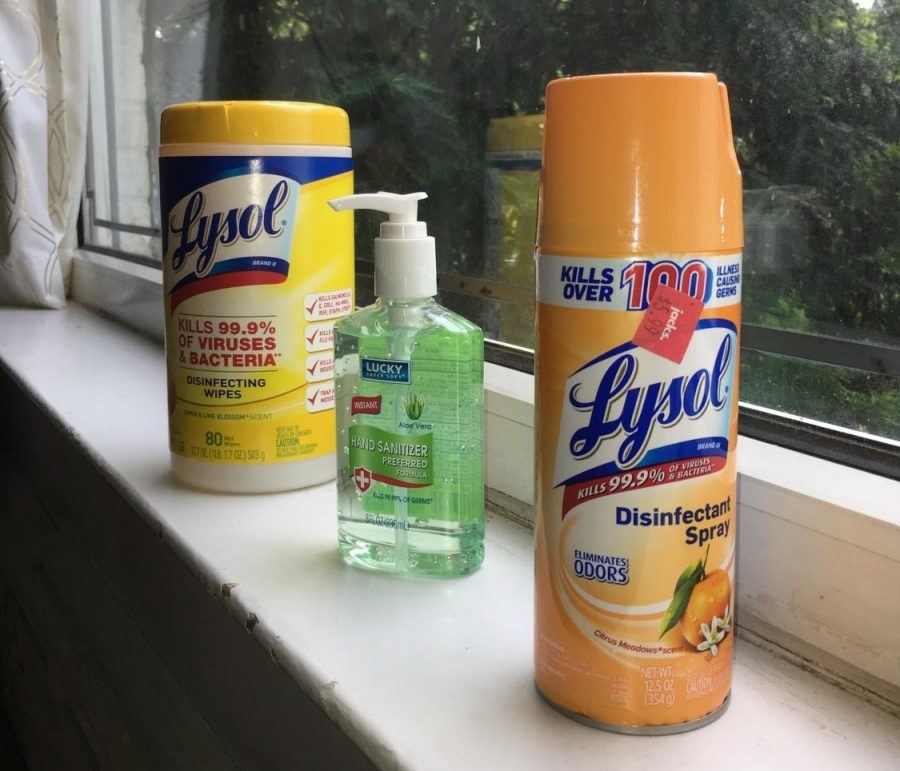The Problem of Price Gouging in New York City During the Coronavirus Pandemic
Here are some of the sanitation products whose prices are most often inflated during the Coronavirus pandemic.
On the corner of Main Street and 41st Road in Flushing, there is a booth where a middle-aged Chinese man sells bootleg films. On a typical day in Flushing, you can hear him promoting the newest Asian dramas and movies to passersby.
“It’s the newest one! Everyone in Korea is watching it now!”
A plastic fold-out table, piled with cases of DVDs on DVDs, lines the corner of the street. People rush on by, paying no mind to the man and his cheap, bootleg recordings of foreign TV shows.
However, as the novel Coronavirus made its way to Flushing, the DVDs were suddenly replaced by sanitation products. Facemasks, hand sanitizers, and rubbing alcohol now sat on stands and tables on the sidewalk. A sign written in Chinese advertised a sale of one package of 100 face masks for $45. The price of a wholesale 500 count of face masks at Staples is around $20, a vast difference from the $45 for 100.
It is not just this one corner of Flushing that has drastically raised the prices on sanitation products. In April 2020, three men were arrested for price gouging face masks at ten times their normal price. In early May 2020, two more men were arrested in Whitestone for charging $45 for 10 face masks. These incidences of price gouging, however, are minuscule in comparison to distributors.
A wholesale grocery distributor is now facing a lawsuit from New York state for selling 46,000 cans of Lysol disinfectant spray at more than double its normal price. This has caused a domino effect on local stores which then are forced to sell the products at inflated prices in order to compete. Some prices go for as much as $16 for a bottle that typically costs no more than $8.
Such people are able to get away with selling at exorbitant prices because of the public’s desperation, according to Haley Sim ’20. “People are panicking because of the pandemic and [stockpiling] products that would have been left on shelves. This sudden increase in the demand for sanitation goods drives and inflates these prices.”
Before the arrival of COVID-19, price gouging was considered a violation of the trade practices law by being unfair or deceptive. However, the penalty that would occur would be a civil penalty only for violating the law. Only in March 2020 of this year, did the New York City Department of Consumer and Worker Protection announce an emergency rule that made price gouging illegal for goods that can prevent the spread of the Coronavirus.
The inflated prices hinder some consumers from being able to buy these goods at reasonable prices, showing how unethical some distributors are. Even online markets like Amazon experience the effects of price gouging, where Purell hand sanitizers can be sold for as much as $400.
To counter these unethical practices, Amazon has taken measures to prevent these things from happening. By March 2020, the online retailer had already suspended 4,000 accounts linked to inflated prices of sanitation products and face masks, hoping that it would be enough to deter other sellers from using the same methods. However, even suspending accounts was not enough to dissuade retailers from selling products at extreme prices.
Now, Amazon is calling for a resolution to price gouging and raging demands of consumers. The company has asked Congress to pass a law with much more severe penalties that would explicitly prohibit price gouging during national emergencies, such as the current pandemic. Whether Congress will consider passing a new law to ensure fair prices is unclear, as the state of national emergency has yet to come to an end.
“This sudden increase in the demand for sanitation goods drives and inflates these prices,” said Haley Sim ’20.
Olivia Chen is the Chief Graphic Designer/Layout Editor for ‘The Science Survey’ and Managing Editor for ‘The Observatory’. She works with her...

